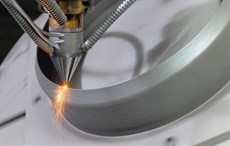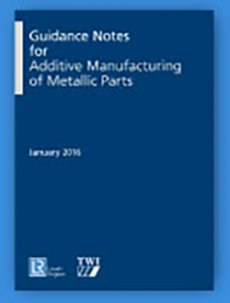Lloyd’s Register launches certification framework to provide confidence in Additive Manufacturing
January 9, 2016
UK based Lloyd’s Register has announced the launch of its Guidance Notes for Additive Manufacturing of Metallic Parts. Produced in collaboration with TWI, the guidance notes are intended to help companies achieve certification with Lloyd’s Register and subsequently provide confidence to end users that a specific part manufactured using AM meets the required codes, standards, controls and best practises.
The guidance notes are an important step towards AM commercialisation and designed to mitigate the industry scepticism that often meets new technology in its early years. As the technology is complex, dedicated guidelines are essential to ensure the quality and repeatability of AM parts.
Lloyd’s Register’s certification framework for AM metallic components provides a step-by-step approach to provide the necessary level of confidence and acts as a stabilising force for quality and safety. By enabling widespread adoption of the technology, the guidelines will support the long-term sustainability of the energy and marine industries.
Chris Chung, Head of Strategic Research at Lloyd’s Register Energy, stated, “As the Lloyd’s Register Energy Technology Radar survey suggests, AM will have a major impact in the oil and gas industry in the next five years. That is why last year, together with TWI and a number of industry partners, we brought together research and development efforts with real-world AM practices.”
In the oil and gas sector, cost savings and efficiency gains are crucial to restore competitiveness and increase investor confidence. The use of AM components would accelerate this and the introduction of AM certification will qualify competency and improve the safety of components and equipment used to replace worn or decommissioned parts.
In the marine industry too there is a move to assess this new technology. Commenting on the implications of AM, Luis Benito, Marketing Director, Lloyd’s Register Marine, stated, “AM will have implications for global industry, trade and shipping as well as ship operations. It is important that we can help drive best practice as AM is adopted around the world.”


















